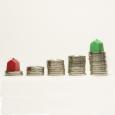How Rich Are Dictators?
Forget about Jeff Bezos, Bill Gates, and Warren Buffet. The richest person in the world is probably found amongst the list of remaining dictators. For example, it was revealed that both Muammar Gaddafi and Hosni Mubarak were rich beyond belief when their accounts were uncovered after they fell from power. They are not the only ones, as suggested in this article. Yet, we do not know who is richest – and we probably never will. Dictators are secretive about their wealth and hide it from the public eye. In addition, it is often hard to know where the state’s coffers stop, and where the pockets of the individual start. Therefore, dictators usually do not figure on lists over the richest people in the world, including Forbes’ annual rankings of the World’s Billionaires. This is problematic for a number of reasons.
While we occasionally see wealthy self-made businessmen turning authoritarian, most dictators make their wealth while in office either through embezzlement, fraud, or shady deals; or they inherit it as part of the governing family, such as the Saud family who are worth up to $1.4 trillion. Many would, therefore, perceive their fortune as illegitimate, and, as a result, most dictators have good reasons to be secretive about their wealth. Corruption is an issue of particular concern to many people, and even though dictators are not accountable through free and fair elections, they occasionally fall out with the masses, and risk sparking public outrage; and perhaps being removed in a revolution.[1] Hence, being officially filthy rich through ill-gotten gains is a bad survival strategy. In addition, because they risk having their wealth confiscated if they are removed, dictators store much of their fortune abroad in secret accounts. And to be sure that they are not sanctioned by the international community or exposed, they often hide their money in other people’s names. It is estimated that 57% of the Gulf countries financial wealth is held offshore, while the number for Russia is 50% and 30% for Africa.[2] Thus, while Putin earned roughly $135,000 in 2018 from his official salary, a military pension, interest on savings, and investment gains, and officially lives in a small apartment, we have good reasons to suspect that he is far, far richer – some even speculate that he is the richest person in the world.
Yet another challenge arises when trying to estimate these dictators’ wealth, as we cannot separate the fortune of the state from the wealth of the individual. Erdogan built a presidential palace with 1,150 rooms for himself, although the building officially belongs to the Turkish state, and it was estimated that Trujillo of the Dominican Republic at some point during his regime controlled about 80% of the industrial production, and 60% of the country's economic activity. Some dictators even acquire such a dominant position and so much power that we can reasonably speculate whether everything in the country is owned by them, summarized by the phrase L’etat c’est moi, attributed to Louis XIV in his time. This is akin to what we sometimes call a personalist dictator, and can manifest in absurdly ostentatious ways, such as Saparmurat Niyazov of Turkmenistan’s affinity for golden statues, or Jean-Bédel Bokassa of Central African Republic’s extremely lavish coronation ceremony that cost a quarter of the gross national product.
While these examples are fascinating, it is also deeply problematic that so much illegitimate wealth lies in the hands of individuals and is hidden away from the public’s eyes. Dictators are squeezing their – often very poor – populations to live lavish lifestyles. Dictators and their inner circles are, in some cases, so wealthy that redistributing their wealth could make a significant difference for the population they govern. Uncovering the fortune of dictators and informing people about their wealth is the first step towards holding them accountable and putting the pressure on for a different form of government. In addition, we now and then see news articles claiming that democratic leaders are very well paid. For example, this list of the 20 of the highest paid world leaders by USA Today is dominated by democratic leaders. If we do not take into account the wealth of autocrats, we risk holding up an unfair comparison to democracy which can lead to resentment of democratic politicians and make people too eager to drain the swamp by voting for a strong man. In fact, members of America's Congress are paupers compared to their Chinese counterparts. While we should have a discussion about whether democratic leaders earn too much (or too little) and the extent to which they are corrupt, the advantage of democracy is that voters can hold their leaders accountable through the ballot box. Ultimately, I believe that one of the best arguments for democracy is that dictatorships far too often become a rich man’s club, where a wealthy group are pillaging their country and redesigning the economic system to a kleptocracy benefitting the few instead of the many. And getting out of this equilibrium (again) can be very hard.
[1] See for example Acemoglu and Robinson (2001), Hollyer, Rosendorff and Vreeland (2015) or Yadav and Mukherjee (2015).
[2] Dictators do of course not possess all this wealth. It is next to impossible to estimate how much they actually do possess.



